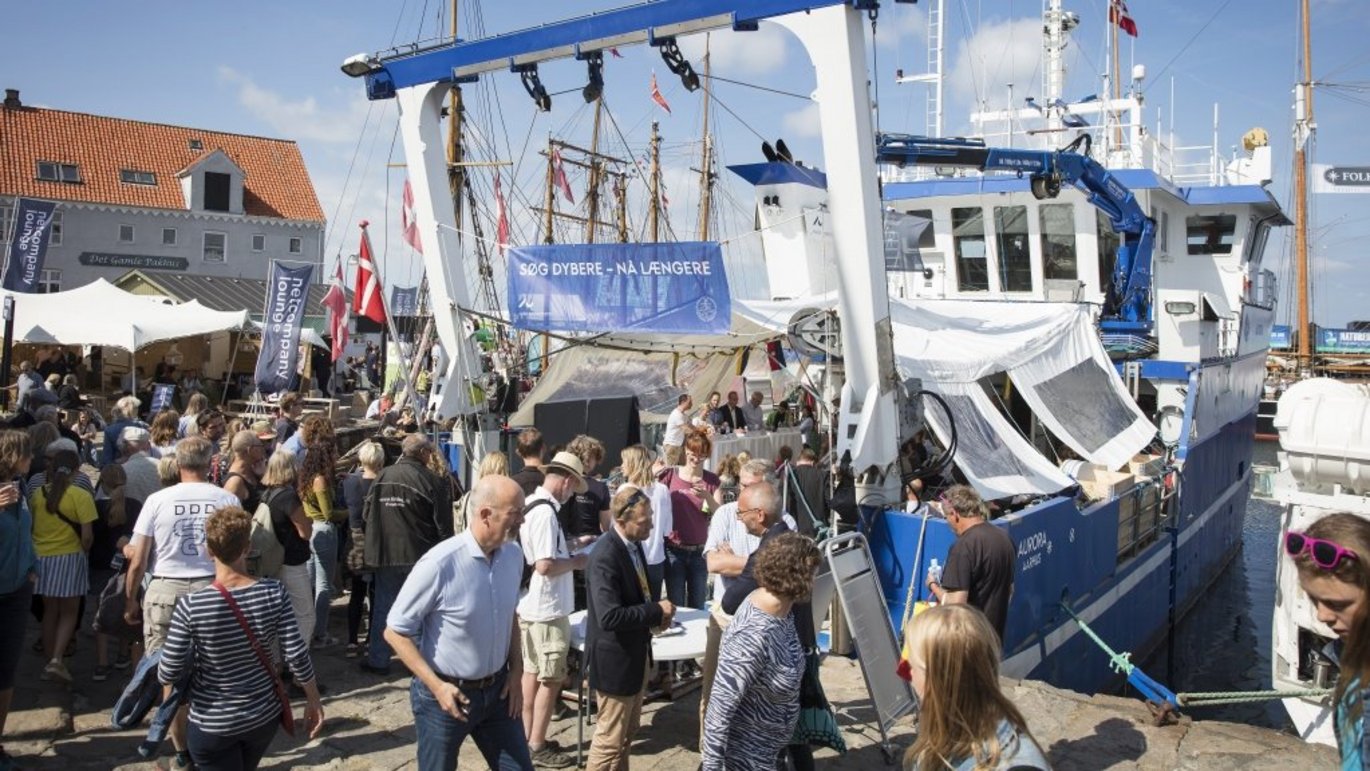Health Focuses on opioids, fertility, and the female body at Folkemødet 2025
The Faculty is once again participating at Folkemødet on Bornholm – this time with three impactful events that highlight some of the most pressing health and societal challenges in Denmark.

The research vessel Aurora will once again serve as the hub for Aarhus University's many activities during Folkemødet, taking place in Allinge on Bornholm from June 12–14, 2025.
Health is behind three events, each bringing new knowledge and important conversations to the forefront – connecting researchers, politicians, organizations, and citizens.
Young people and opioids – How do we reverse the trend?
Opioid use among young people is on the rise and calls for action. But how do we reverse the trend before it becomes entrenched in society? On Thursday, June 12 from 11:30 AM to 12:30 PM, Health, Arts, and BSS gather a strong panel of researchers, practitioners, and commentators to discuss possible solutions with the audience.
Clinical associate professor and chief physician Charlotte Uggerhøj Andersen from the Department of Forensic Medicine and the Department of Biomedicine, media researcher Stine Liv Johansen, and psychologist Birgitte Thylstrup will contribute expert knowledge and analysis. Nana Wad, who lost her son to substance abuse, René Hedegaard from Ungdomsringen, and Karen Hatt Olsen from Netstof.dk will share real-world experiences and ideas for concrete solutions.
Why aren’t we having more children?
Birth rates are falling in Denmark and globally – but why? Is it due to declining biological fertility, social conditions, or something else entirely? Professor of epidemiology Cecilia Ramlau-Hansen from the Department of Public Health is an internationally recognized fertility researcher. On Friday, June 13 from 3:35 PM to 4:35 PM, she will join journalist Jacob Rosenkrands to delve into what research says about the trend – and also address how social inequality in fertility exacerbates other societal disparities.
The event highlights both causes and possible paths forward and invites the audience to reflect on one of today’s major questions: What does it mean for society and individuals when fewer people choose – or are able – to have children?
The overlooked body
Why is there less research on women’s diseases and bodies than on men’s? This question is central to Health’s final debate event, taking place on Saturday, June 14 from 10:30 AM to 11:30 AM. Historically and culturally, women’s bodies have been overlooked in medical research, with serious consequences for diagnosis, treatment, and health.
Clinical professor Ida Vogel from the Department of Clinical Medicine and the Department of Obstetrics and Gynecology at Aarhus University Hospital, industry director Katrina Freilberg (Danish Chamber of Commerce) and Member of Parliament Stinus Lindgreen (RV) will engage in dialogue with the audience about how we can correct this imbalance – and what changes are needed in research, healthcare, and policy to ensure women’s bodies are taken as seriously as men’s.
The research ship continues to host many events with researchers from across the university. Additionally, several Health researchers will take part in debates and presentations organized by partners, organizations, and businesses.
See the full program for Folkemødet 2025 on Folkemødets website.
Follow Health's LinkedIn and Aarhus University's LinkedIn for updates from the event.
Contact
Advisor Caroline Søndergaard Bendixen
Aarhus University, Health Administrative Center – The Faculty Secretariat
Mobile: +45 93 50 80 78
Email: carben@au.dk